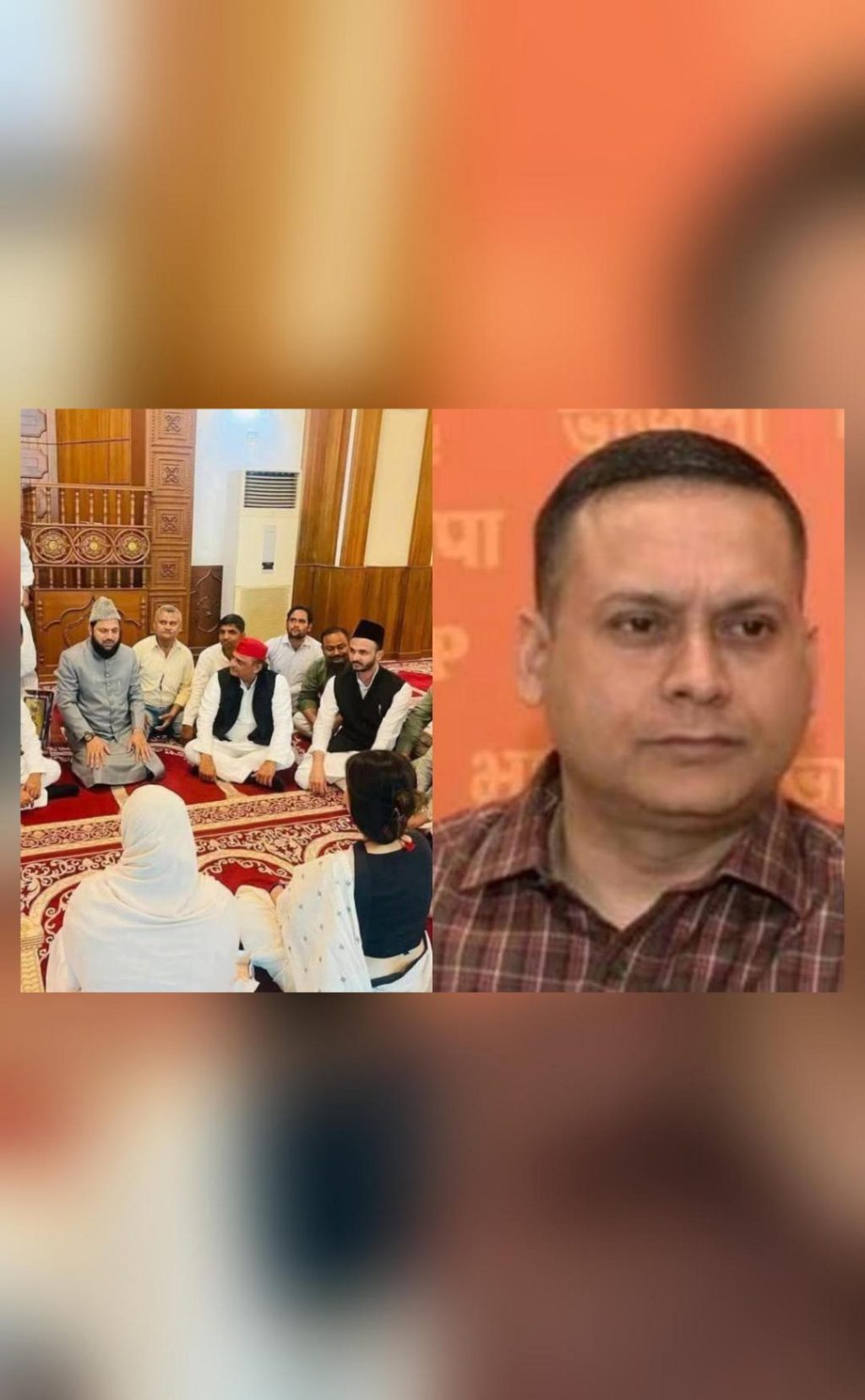
Hypocrisy: BJP’s Malviya on Akhilesh holding party meet in mosque
The debate on secularism and religious neutrality has been a long-standing issue in Indian politics. With the recent controversy surrounding Samajwadi Party (SP) chief Akhilesh Yadav’s alleged party meeting inside a mosque in New Delhi, the question of hypocrisy has been raised once again. In response to this development, BJP leader Amit Malviya has accused Akhilesh Yadav of perpetuating hypocrisy for the sake of vote bank.
The controversy began when reports emerged that Akhilesh Yadav had held a party meeting inside a mosque in New Delhi. The mosque, located in the heart of the city, was allegedly chosen by the SP leader to hold the meeting, sparking outrage among many who saw it as an attempt to garner Muslim votes.
Reacting to the development, Amit Malviya, the BJP’s IT cell head, took to Twitter to express his displeasure. In a series of tweets, Malviya accused Akhilesh Yadav of hypocrisy, stating that the SP leader was using the mosque for political gain.
“This isn’t secularism but hypocrisy done for the sake of vote bank,” Malviya tweeted. “These are the same people who distanced themselves from the grand inauguration of the Ram Temple [in Ayodhya], calling it a political project.”
Malviya’s comments were seen as a direct attack on the SP leader’s political stance, and many have interpreted his remarks as a bid to tarnish Akhilesh Yadav’s image. However, Malviya’s criticism is not without merit. The fact that Akhilesh Yadav chose to hold a party meeting inside a mosque, a place of worship, raises questions about his commitment to secularism and religious neutrality.
The controversy has sparked a heated debate about the role of religion in politics. Many have argued that political leaders should maintain a strict separation between their religious beliefs and political activities. Others have defended Akhilesh Yadav’s decision, citing the need to engage with minority communities and promote social harmony.
However, Malviya’s criticism is not limited to Akhilesh Yadav’s decision to hold a party meeting inside a mosque. He has also accused the SP leader of hypocrisy, citing his party’s stance on the Ram Temple issue. The SP has been historically opposed to the construction of the Ram Temple in Ayodhya, citing religious sentiments and the need to maintain communal harmony.
In contrast, the BJP has been a vocal supporter of the Ram Temple movement, seeing it as a symbol of Hindu cultural identity. Malviya’s remarks are seen as a bid to highlight the SP’s alleged double standards, accusing them of being selective in their approach to religious issues.
The controversy has also highlighted the challenges of navigating religious sensitivities in Indian politics. Political leaders often walk a fine line between promoting social harmony and addressing the religious beliefs of their constituents. In this context, Akhilesh Yadav’s decision to hold a party meeting inside a mosque may have been seen as an attempt to court Muslim votes, but it has also sparked concerns about the role of religion in politics.
In conclusion, the controversy surrounding Akhilesh Yadav’s party meeting inside a mosque has sparked a heated debate about the role of religion in politics. While some have defended the SP leader’s decision, citing the need to engage with minority communities, others have accused him of perpetuating hypocrisy for the sake of vote bank. As the debate continues, it is essential to maintain a nuanced understanding of the complex issues at play, recognizing both the need to promote social harmony and the importance of maintaining religious neutrality in politics.
Source: https://x.com/amitmalviya/status/1947922156274287072






